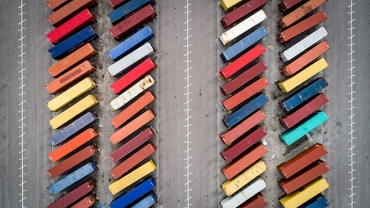
Update on retroactive use of preferential tariffs under Japan-EU FTA
16/07/19
There is uncertainty as to the possibility of claiming preference retroactively under the Free Trade Agreement (FTA) between Japan and the EU.
The EU Committee and the Japanese Government would have discussions on this subject and an outcome was promised before the 1st of July. The discussions were to lead to a uniform stand on the retroactive use of preferential tariffs under the FTA. Unfortunately, no agreement has been reached so far and the negotiations will continue until further notice. At this moment, as such there is no new date on which an agreement can be expected.

Differences between Member States
What you see happening is that the EU Member States is that they are divided on the retroactive use of preferential tariffs. The Dutch Customs Authority, for example, have a different approach than the French Customs Authority.
The Dutch Customs Authority will continue to allow the retroactive use of preferential tariffs for imports from Japan until an agreement is reached. Reimbursement will be granted under the condition that retroactive use of preferential tariffs under the FTA will in the end be allowed. The French Customs Authorities seem to have chosen a different path. A refund request due to the retroactive application of a preferential tariff under FTA will just be denied.
Refund requests
The EU Committee and the Japanese Government are still negotiating. In case the negotiations lead to the result that a preferential tariff from the FTA can be applied retroactively, this will be applicable for all EU Member States.
A company has 3 years to request a refund for the paid import duties in these instances under the UCC. Therefore, there is some time to await the outcome of the negotiations between the EU Committee and Japanese Government, without losing your rights to claim back the duties paid.
The Takeaway
The discussion regarding the retroactive use of preferential tariffs on imports from Japan again shows the importance for companies to be aware of possible preferences to be claimed from FTA's and being able to apply the preference directly upon importation. Certainly since the European Committee is apparently willing to diverge from the UCC framework in relation to the retroactive applications if the Japanese Government refuses to allow for retroactive use of preferential tariffs.
In general you see that knowing the origin of your products is getting more and more important, not only to be able to profit from potential preferential duty rates under FTA's, but also in light of the duties being imposed in relation to the trade wars. Therefore we recommend companies to put processes and procedures in place around determining the origin of their products but also agree in their contract with supplier that origin certificates need to accompany the goods and that if wished for the underlying documentation for determining the origin will be made available.
Contact


Suzanne Bras
Senior Manager Customs & International Trade, PwC Netherlands
Tel: +31 (0)65 395 86 76


















